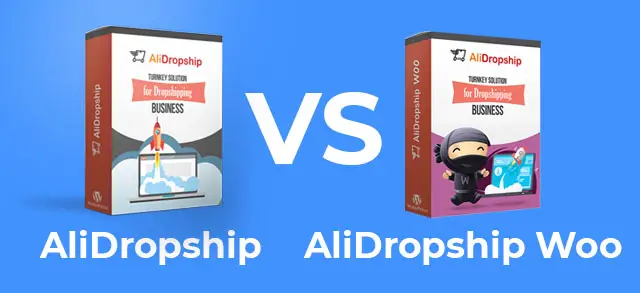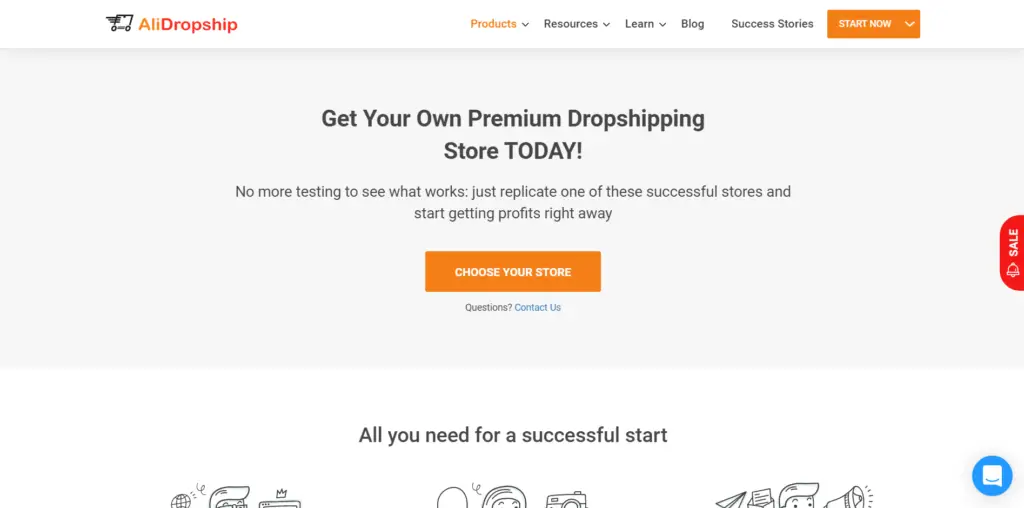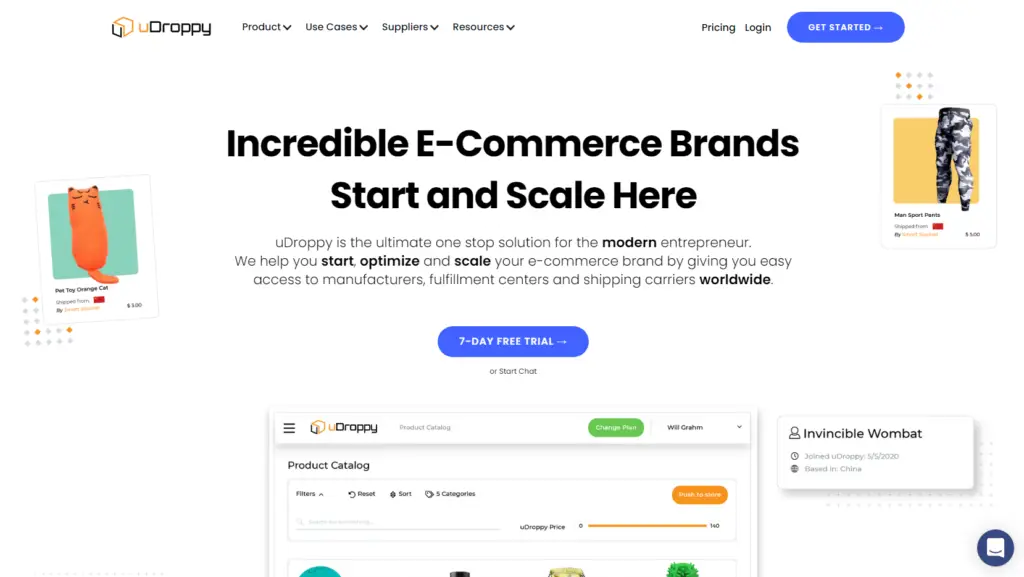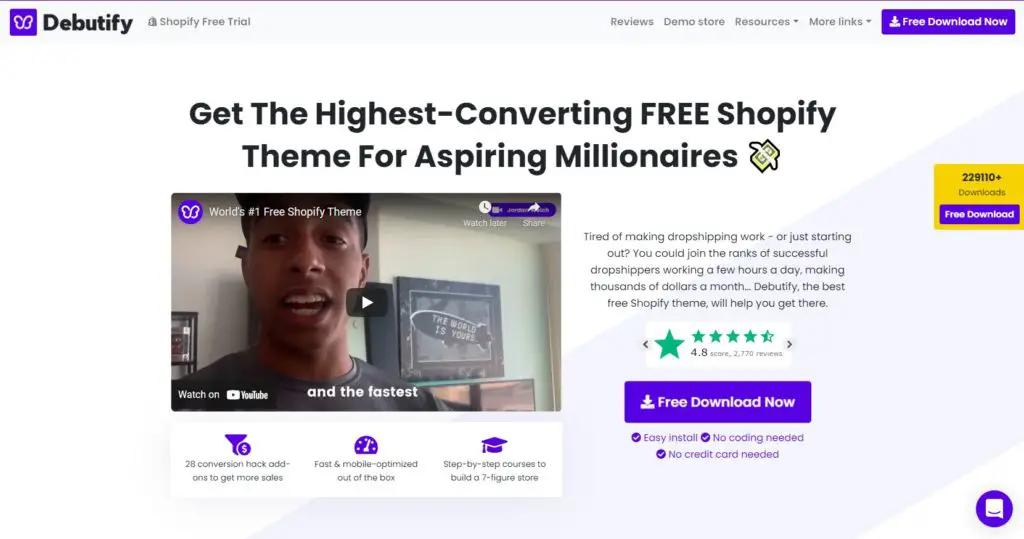This post may contain affiliate links. Please read my affiliate disclosure for more information.
Dropshipping or Private Label? Which is better for your eCommerce business?
In this post, we’ll cover the similarities and differences between dropshipping and private label business models.
What is Dropshipping?
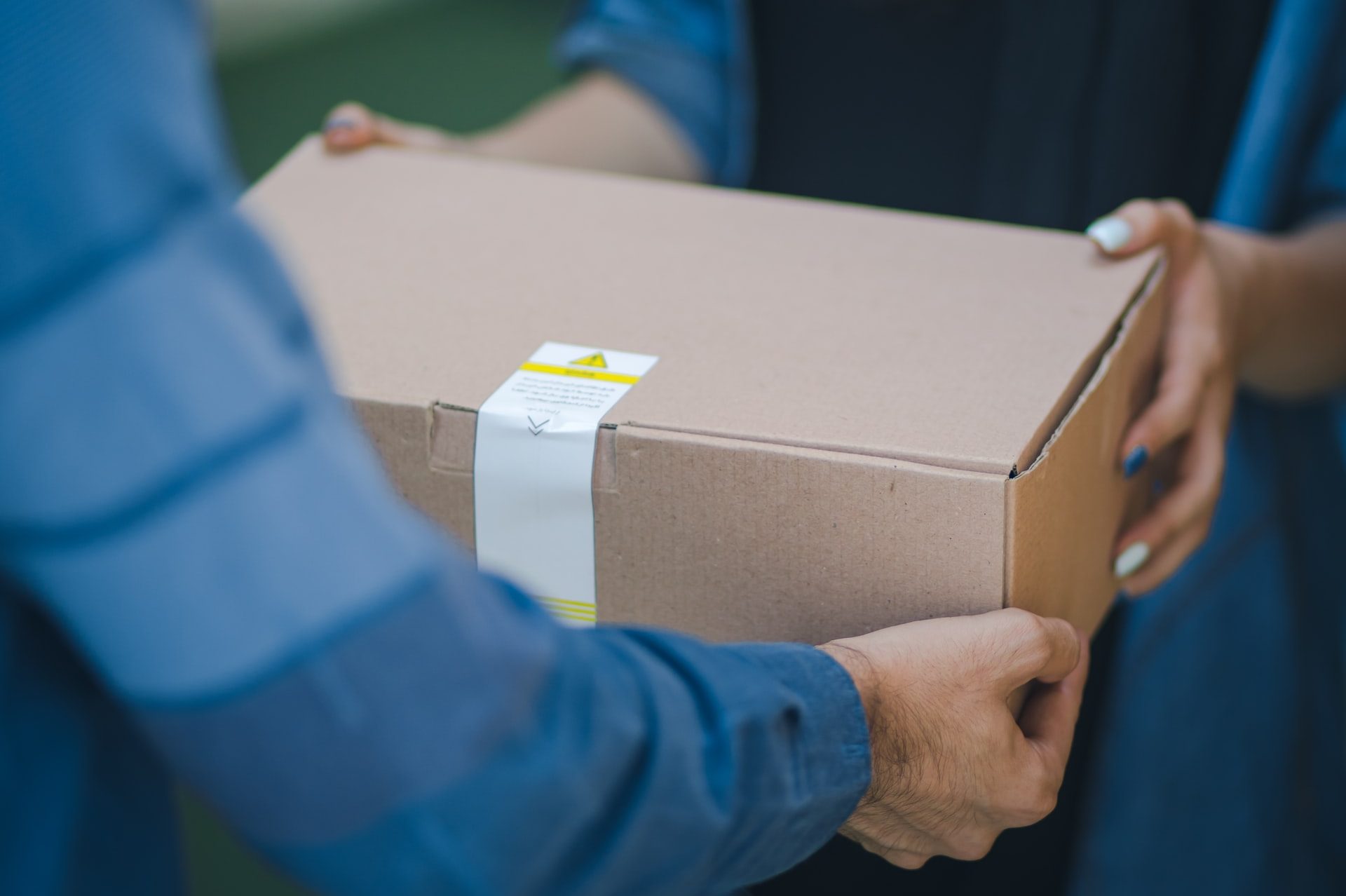
Dropshipping is when you sell a product from a supplier, then the manufacturer ships the item directly to the customer.
This allows you to list products on your eCommerce store without having to buy any inventory unless you make a sale.
Which sounds fantastic!
You’re able to get into the marketplace with little upfront cost other than setting up your website and planning out your marketing strategy. Once you build relationships with suppliers, you can start selling right away and get up and running.
All it takes is a few good products that serve a specific niche market to do well in the business.
Depending on what type of dropshipping you’re doing, you also get to leverage brand recognition and brand keywords.
For example, if someone is searching for a very specific Bunn commercial coffee grinder, and you have a good price on it, you’ll make a sale without any product design or creation costs.
Wayfair has taken advantage of this business model for years.
The problem is when you’re dropshipping, you’re selling someone else’s brand of products. Which means they control everything. This could mean if they don’t want you to:
- Sell it for a particular price
- Apply certain discounts
- Run specific Facebook ads
- Do email marketing
- Sell on multiple websites or channels
They control all of those aspects and could pull your business out anytime they want. They could say that you’re no longer allowed to sell such-and-such product.
When you sign up to sell products with them, in their terms and conditions, you have to sign an agreement stating how you’re going to be able to sell the product. Anytime they want, they could terminate the agreement and you have to find another supplier or product to sell.
What is Private Label?
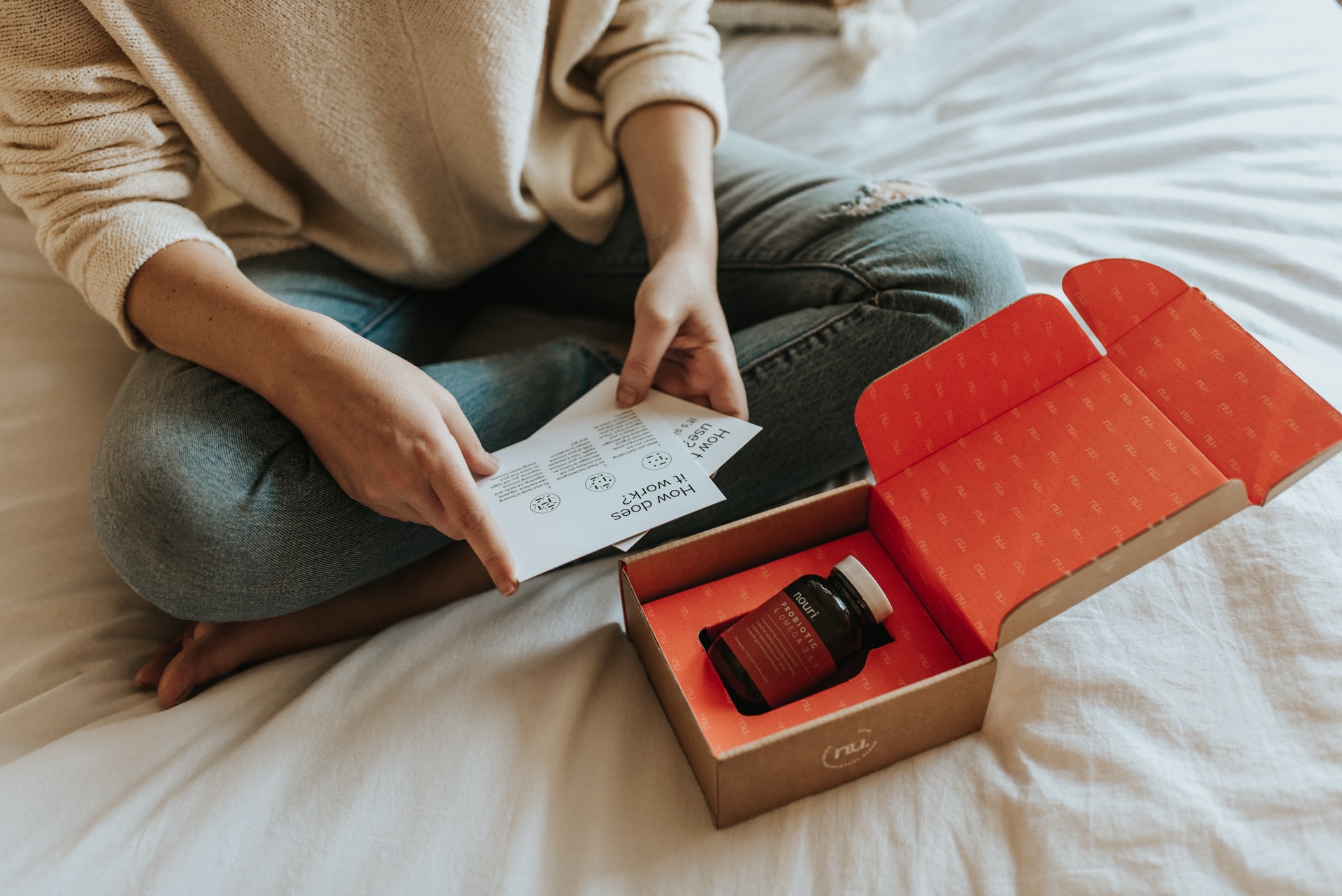
Private label is where you can put any label you want on a generic version of most products you can sell in the marketplace.
Many times with private label products, you’re able to get much better margins as well which can help you level up your business.
Profit margin means the figure that indicates how many cents of profit the business has generated for each dollar of sale.
Say you sell a product for $25 on your online shop, and it costs you $20 with dropshipping, with a profit margin of $5 per sale.
$25 list price – $20 product cost = $5 profit per sale
Or with private label, you could get your cost down to $10 per unit, leaving you with a profit margin of $15 per sale.
$25 list price – $10 product cost = $15 profit per sale
This means you can reduce your cost of goods sold (aka COGS). Thus allowing you to scale up more advertising campaigns, run bigger discounts, get more sales, and make more money.
In addition, you have more control over the customer experience and what their unboxing is like.
If all your competitors are dropshipping in this scenario, it’s likely you’ll end up beating them out in the long run. Although, if branding is more important in your industry, it could be better to stick with dropshipping.
There’s also a bit more R&D (research and development) typically involved with selling a private label product.
Dropshipping vs Private Label: Which Is Better?

While both business models have their strengths and weaknesses, getting into any business is better than no business to get something going.
If you want to get started for less upfront cost, then dropshipping may be better for you.
However, if you already have something working and you want to scale up, then private label is a great option as well.
Creating your own brand is far easier nowadays than it used to be. If you want to create your own brand all you need to do is go to Google and search for the “product name” and then “private label”. Or you can search for the product on a site like Alibaba.
For this example we’ll use coffee:
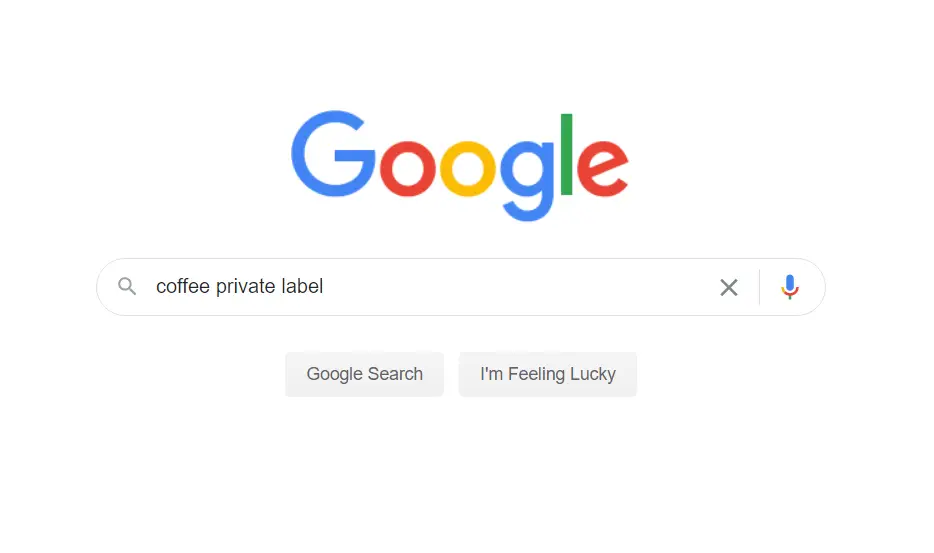
One of the first results is Joe’s Garage Coffee, where they offer private label coffee packaging:
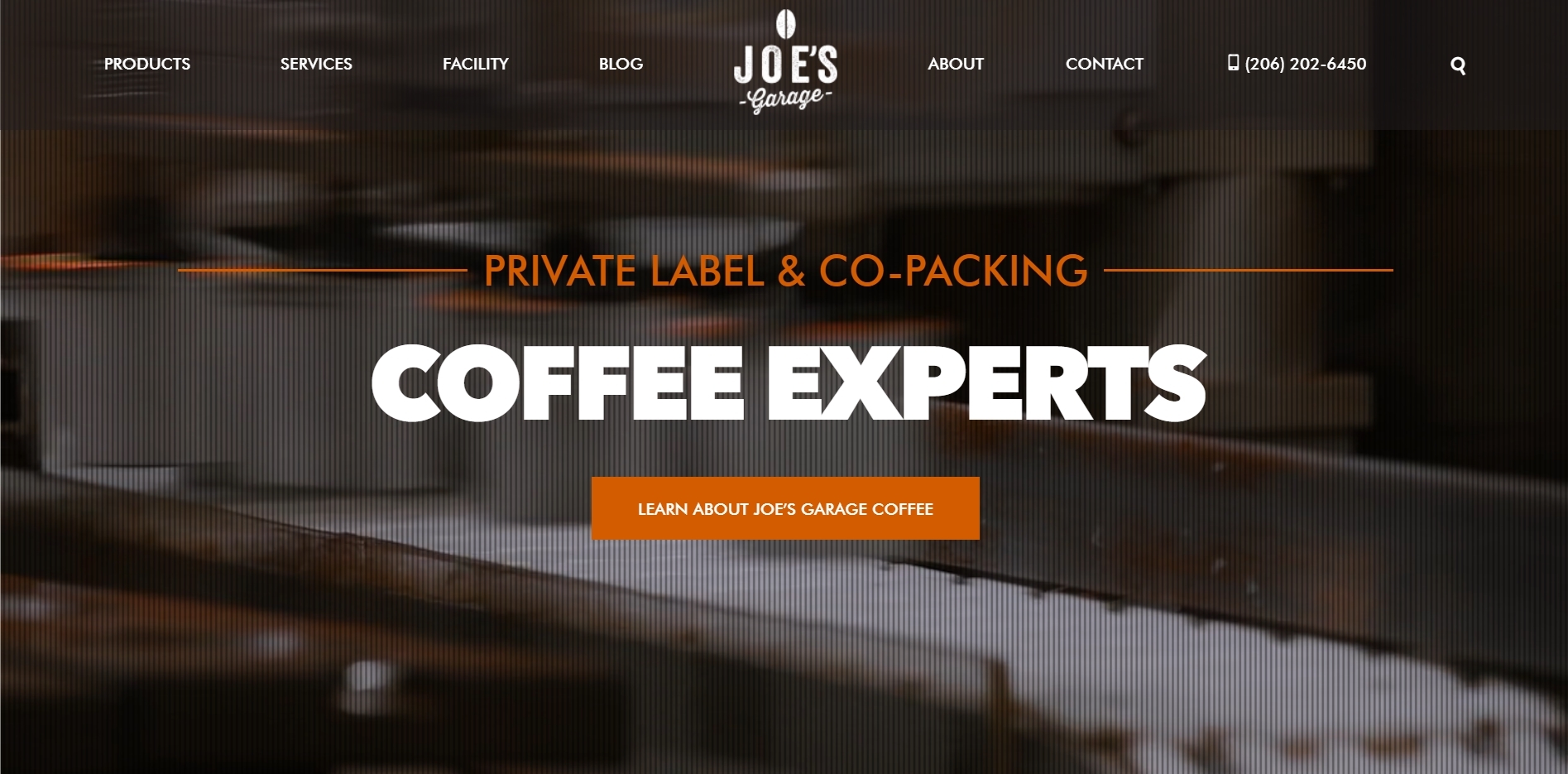
With this company or another private label option, you could create your own brand within a reasonable lead time.
Dropshipping vs Private Label: Business Valuation

Another aspect to consider when comparing the two models is the value of the business if you were to sell it.
If you’re just doing dropshipping (particularly with products from AliExpress), what’s to say there are not a million other people trying to do the same exact thing as you? Anyone could take your business without a proper competitive moat or exclusive supplier relations.
If you go to sell a low-quality dropshipping business, it won’t be worth much. On the other hand, if you own your own brand, it’s far more difficult for someone to copy you because you can have trademarks and copyright behind it with more legal protection.
Private label businesses could sell all the way up to 36 to 60 times monthly profit multipliers.
According to Empire Flippers online business trends, typically companies that own their own brand is a lot more valuable to investors than those who dropship.
They go more in depth on the subject in these podcast episodes:
If you already own a business, you can use their valuation tool to find out how much your online business is worth.
Final Verdict
At the end of the day, dropshipping and private label both have their benefits and drawbacks. It’s up to you to decide which is a better fit depending on your scenario and circumstances.
One way to do it is to do both! For example, you could do dropshipping on branded products like commercial coffee machines and then sell your own private label coffee beans as an add-on or cross-sell.
It’s another option as you’re not locked into only doing one specific model within your business.
Or instead, you can choose to stick with one business model and run with it, it’s up to you. Focus is key, especially in the beginning, and you can always branch out later.

